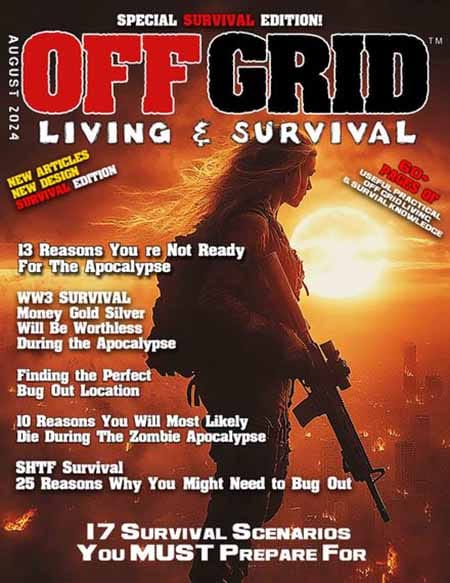
$49 Lifetime membership sale is ending!
Grab your lifetime membership now while you still can. Don't miss this deal.

Grab a FREE sample issue of Off Grid Living & Survival.
Signup takes 10 seconds. You’ll also unlock 200+ articles & essays and exclusive content — all FREE.


Grab your lifetime membership now while you still can. Don't miss this deal.

Price will increase to $149 at midnight tonight! This is your last chance to get the lifetime membership at $49

SUBSCRIBE NOW FOR $49 LIFETIME MEMBERSHIP TO HELP FUND THE OFF GRID CAMPER BUILD

I'm proud to present our own Off Grid Living & Survival group member as she tells us how she and her partner built her off grid dream. Subscribe now to read the exclusive story.

5 Weeks. $5,000. Or We Lose the House.

This is how you go off grid. Read the whole post

$49 Unlocks the Entire Off-Grid Library (Limited Time)

Lifetime membership only $49

we need to know how to survive

Grab your lifetime membership now while you still can. Don't miss this deal.

I’m Burned Out, and Being Honest About Why: This off grid community survives on people who actually give a damn and it only works if the people who benefit help keep it going.

Just published the new issue, go check it out!

Signup now to be the first to read the new issue when it drops!

Be The First To Read It! Subscribe Now

Signup For $49 Lifetime Membership + GET ALL BACK ISSUES FREE!

If you like and benefit from my content please consider subscribing or donating. Every little bit helps.